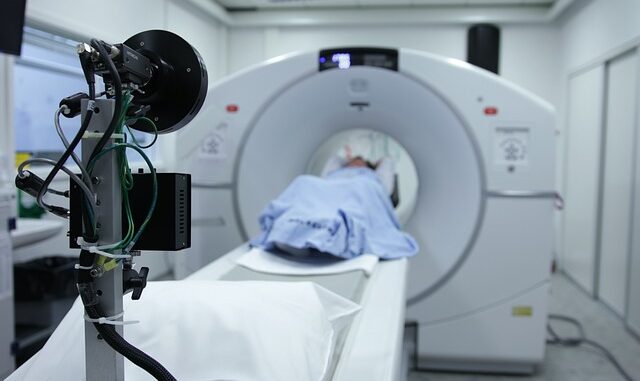
Summary
This article explores the transformative impact of artificial intelligence (AI) across healthcare, from diagnostics to education. We delve into AI’s role in enhancing diagnostic accuracy, personalizing treatment, accelerating drug discovery, and revolutionizing medical education. The future of healthcare is intelligent, and AI is leading the charge.
** Main Story**
AI is making waves in healthcare, and it’s not just hype. From spotting diseases to training tomorrow’s doctors, it’s changing the game. It’s all about crunching massive datasets, finding patterns, and making smart predictions – revolutionizing everything from diagnosis to drug development. Plus, AI is personalizing medical education, offering tailored learning and advanced simulations. So, how is this actually playing out? Let’s dive in.
AI-Powered Diagnostics: Faster, More Accurate
Imagine a radiologist spending hours poring over X-rays, trying to catch the faintest anomaly. Now, picture an AI doing that in seconds, flagging potential issues with incredible accuracy. That’s the power of AI in diagnostics. Algorithms, trained on mountains of medical images, can quickly identify subtle problems that a human might miss. This speed and precision are critical in time-sensitive situations like emergencies and critical care; you can’t afford to wait when lives are on the line.
But it’s not just about speed. AI is also helping us detect diseases earlier. By analyzing patient data and comparing it to known risk factors, it can spot early signs of cancer or heart disease. Early detection, as we all know, can be a lifesaver. Consider ECGs and other data; AI’s ability to sift through this information with high accuracy is revolutionizing heart diagnostics, offering non-invasive ways to assess risks. Think about it: less invasive, more precise—a win-win.
And it goes beyond just the big stuff, actually. AI is even improving burn and wound management. By analyzing images, it can identify infections and assess burn depth faster and more accurately than traditional methods. That said, it’s not replacing doctors; it’s augmenting their abilities, giving them a powerful tool to make better, faster decisions.
Personalized Treatment and Accelerated Drug Discovery
We’re moving towards a future where treatments are tailored to the individual, and AI is helping us get there. Instead of a one-size-fits-all approach, AI can analyze a patient’s medical history, genetic information, and current health data to predict potential risks and recommend the most effective treatment plans. This leads to better outcomes and fewer side effects, which is what every patient wants, right?
Similarly, AI is revolutionizing drug discovery. It can predict how different drugs will interact with the body, significantly speeding up the process. Clinical trials are expensive and time-consuming, but AI can help us narrow down the most promising candidates, saving both time and money, enabling faster development of new therapies.
Transforming Medical Education with AI
Remember those endless nights of rote memorization in medical school? AI is changing that, too. AI-powered platforms are creating interactive quizzes, generating study questions, and providing personalized feedback to students, adapting to their individual learning styles. Moreover, AI-driven simulation tools let students practice clinical skills and decision-making in a safe, virtual environment.
These simulations can present a wide range of symptoms, conditions, and medical histories, giving students valuable hands-on experience before they ever interact with a real patient. Also, AI can analyze student performance data to identify areas where they’re struggling and recommend personalized learning resources. I recall when a doctor was telling me about his training, he mentioned that it would have been invaluable to have this, especially when learning to deal with a trauma situation.
The Future of AI in Healthcare: A Promising Outlook
The future looks bright for AI in healthcare. We can expect to see even more sophisticated diagnostic tools, personalized therapies, and innovative educational resources. The integration of AI with other technologies, like the Internet of Medical Things (IoMT), will further enhance healthcare delivery. However, ethical considerations, data privacy, and the need for human oversight are crucial. We need to ensure that AI is used responsibly and ethically, always with the patient’s best interests at heart. AI isn’t a replacement for human doctors and nurses; it’s a tool to help them provide better, more efficient, and more personalized care. It will revolutionise healthcare as we know it.


Be the first to comment